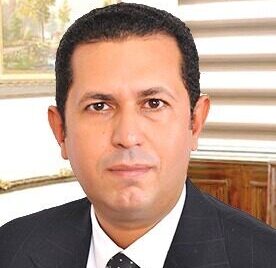Africa has an abundance of natural wealth and manpower that qualifies it to be a cornerstone for industry in the world. However, the continent needs support and determination in order to move ahead in this direction, which is key economic growth and development.
It would no exaggeration to say that Africa is the land of promising opportunities in industry and agriculture if there were peace, security and reconstruction in areas that have witnessed protracted armed conflict.
The African Union Summit on Industrialisation and Economic Diversification in Niamey, Niger last week was themed ‘Industrialising Africa: Renewed Commitment towards an Inclusive and Sustainable Industrialisation and Economic Diversification’.
The summit aimed to mobilise resources, partnerships and coalitions towards a campaign for manufacturing in Africa and use the continent’s rich and diverse natural resources.
The summit celebrated the 2nd Africa’s Post-Conflict Development and Construction Week with an event, ‘Towards Repositioning Post-Conflict Development and Construction in Africa’.
Egyptian President Abdel Fattah El Sisi addressed this event saying: “This celebration sheds the light on the great attention we all give to this important dossier. It has come amid several challenges and crises at regional and global levels.”
In light of this, the president prompted international partners to maintain their efforts in developing the African continent by supporting national institutions, reinforcing the rules of governance and developing ways for sustainable peace.
“Egypt believes in how importance this file is to African countries and in its significance to enhancing and protecting peace and stability, and as AU champion on post-conflict reconstruction and development, I place special importance to this end, including Egypt’s hosting of the AU Post-conflict Reconstruction and Development Centre (PCRD).
“The PCRD will serve as one of the ‘major tools’ and a key resource for the Union’s pursuit of peace and stability, which are expected to reinforce development in many countries of the continent,” President Sisi said.
With the realisation of peace and stability, manufacturing is the only remaining tool to fulfill inclusive development. Africa is reliant on its abundant labour force and natural resources to boost its industry.
Given the importance of industrialisation and economic diversification in Africa, the AU summit was convened to accelerate action towards this by supporting the private sector and small and medium-scale enterprises (SMEs) that contribute at least half to development in Africa.
Fostering partnership between the public and private sectors as well as multilateral collaboration are key to realising sustainable, inclusive industrial development in Africa that has managed to stay resilient to external shocks.
Africa Industrialisation Day, commemorated annually on 20 November, is an opportunity to gauge the progress made over the previous year in the industrialisation file in Africa. It is also a platform for dialogue on the policies that should be taken towards this end by making optimal use of the continent’s extraordinary economic potential in all fields, including agriculture.
Industrial development is pivotal to inclusive economic growth in African countries. Industry-based local economies can maintain high growth rates and are resilient to upheavals elsewhere. This, in turn, contributes to combating poverty, creating jobs and wealth. This was asserted by the Secretary-General of the UN António Guterres who called for joining forces to build a continent where there is sustainable development, peace, and prosperity.
Mohamed Fahmy is the editor-in-chief
of The Egyptian Gazette and
the Egyptian Mail newspapers






Discussion about this post